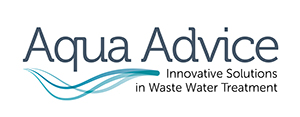Alternative technologies in industrial wastewater treatment plant design

Wastewater treatment plant design traditionally uses methods like chemical coagulation, sedimentation, and biological treatment. However, there are emerging alternative technologies promising to address the challenges posed by industrial effluents. We look at some of them…
Membrane bioreactors (MBRs)
MBRs combine membrane filtration with biological treatment to achieve high-quality effluent standards.
In MBR wastewater treatment plant design, microfiltration or ultrafiltration membranes act as a physical barrier to separate suspended solids and microorganisms from the wastewater.
Benefits of MBR wastewater treatment:
- Eliminates the need for secondary clarification, resulting in a more compact treatment footprint.
- Higher removal efficiencies for contaminants such as pathogens, suspended solids, and organic pollutants.
- Greater flexibility in treating variable wastewater compositions.
- Operates at higher biomass concentrations, leading to reduced sludge production and disposal costs.
Electrocoagulation (EC)
EC involves the use of electric current to destabilise and agglomerate suspended particles, colloids, and dissolved pollutants, facilitating their removal from the wastewater.
Metal electrodes, typically aluminium or iron, are immersed in the wastewater. Upon electrification, metal ions are released into the solution, generating coagulating agents such as hydroxide and metal hydroxide flocs.
These flocs entrap contaminants, which can then be separated through sedimentation or filtration.
Benefits of EC wastewater treatment:
- Rapid treatment rates
- Effective removal of a wide range of pollutants
- Minimal sludge production.
- Easily scaled and automated, making them suitable for various industrial applications.
Advanced oxidation processes (AOPs)
AOPs utilise powerful oxidants such as ozone, hydrogen peroxide, and ultraviolet (UV) radiation to degrade recalcitrant organic compounds and toxic pollutants present in wastewater.
AOP wastewater treatment plant design generates highly reactive hydroxyl radicals (·OH), which oxidise organic molecules into simpler, biodegradable by-products.
Benefits of AOP wastewater treatment:
- Particularly effective for treating industrial effluents containing persistent organic pollutants, pharmaceutical residues, and emerging contaminants.
- Can operate under ambient conditions.
- Do not require the addition of chemicals, minimising operational costs and environmental impacts.
Constructed wetlands
Constructed wetlands offer a natural and sustainable approach to industrial wastewater treatment plant design.
These engineered ecosystems mimic the functions of natural wetlands by utilising wetland vegetation, soil, and microbial communities to remove pollutants through physical, chemical, and biological processes.
As wastewater flows through the wetland system, plants and microorganisms uptake nutrients, metabolize organic matter, and promote the degradation of contaminants.
Benefits of constructed wetlands:
- Versatile
- Can be designed as free-water surface or subsurface flow systems, depending on the specific treatment objectives and site conditions.
- Low energy requirements
- Habitat creation
- Aesthetic enhancement
- Suitable for treating various industrial wastewaters, including agricultural runoff, mine drainage, and landfill leachate.
Innovative wastewater treatment plant design from Aqua Advice
With over thirty years in the wastewater treatment industry, Aqua Advice strives to be at the forefront of effluent treatment technology.
We have developed unique and innovative treatment methods including the use of novel technology for sulphate and molybdenum removal.
By using innovative, alternative technologies in wastewater treatment plant design, we hope to offer clients wastewater treatment solutions with:
- Enhanced efficiency
- Reduced energy consumption
- Minimal chemical usage
To discuss using alternative technologies in your industrial wastewater treatment plant design, get in touch with Aqua Advice today.
